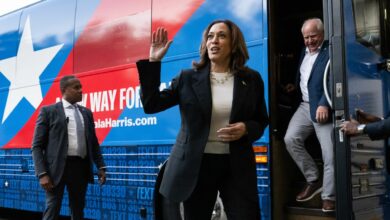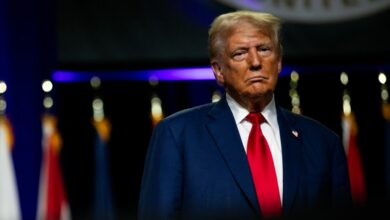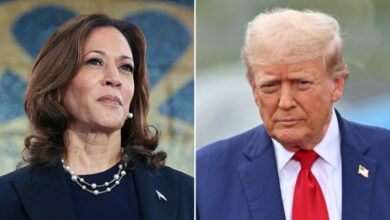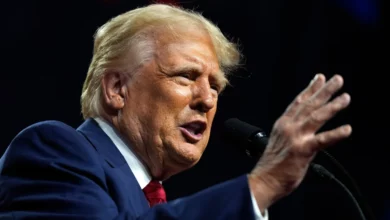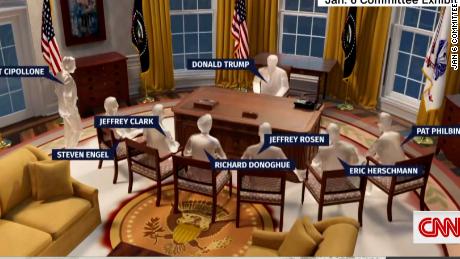
(CNN)The January 6 select committee’s latest public hearing on Thursday shed considerable new light on former President Donald Trump’s attempts to weaponize the Justice Department in the final months of his term as part of his plot to overturn the 2020 election and stay in power.
The hearing kicked off mere hours after federal investigators raided the home of Jeffrey Clark, who was one of the key Justice Department figures who was involved in Trump’s schemes. He has denied any wrongdoing related to January 6.
Three Trump appointees testified in-person on Thursday, joining a growing list of Republicans who have gone under oath to provide damning information about Trump’s post-election shenanigans. The witnesses were former acting Attorney General Jeffrey Rosen, his deputy Richard Donoghue, and Steven Engel, who led the department’s Office of Legal Counsel.
Here are takeaways from Thursday’s hearing.
Select committee has the goods on GOP congressional pardons
Thursday’s hearing underscored the role that Trump’s Republican allies in Congress played in furthering his efforts to try to overturn the election — and how many of them sought pardons after January 6.
The House select committee in particular zeroed in on the efforts of Rep. Scott Perry, the Pennsylvania Republican who connected Justice Department official Jeffrey Clark to the White House in December 2020.
CNN has previously reported on the role that Perry played, and the committee in court filings released text messages Perry exchanged with White House chief of staff Mark Meadows about Clark.
“He wanted Mr. Clark — Mr. Jeff Clark to take over the Department of Justice,” Cassidy Hutchinson, a former Meadows aide, said about Perry in a clip of her deposition that was played at Thursday’s hearing.
The committee also unveiled new details about Republican members of Congress seeking pardons after January 6, including Perry and Reps. Mo Brooks of Alabama and Matt Gaetz of Florida.
“President Trump asked me to send you this letter. This letter is also pursuant to a request from Matt Gaetz,” said an email Brooks sent to the White House in January 2021, according to the committee. “As such, I recommend that president give general (all purpose) pardons to the following groups of people.”
The email included a group of the names of “every congressman and senator who voted to reject the electoral college vote submissions of Arizona and Pennsylvania.”
Thursday’s hearing was led by Rep. Adam Kinzinger, an Illinois Republican who has largely been ostracized by the Republican conference for his role on the January 6 committee.
“My colleagues up here also take an oath. Some of them failed to uphold theirs and instead chose to spread the big lie,” Kinzinger said before discussing pardons.
Kinzinger is retiring at the end of his term.
Inside a December 2020 Oval Office meeting
The hearing brought to life a high-stakes Oval Office meeting in December 2020, where Trump considered firing the acting attorney general and installing Clark, who was willing to use the powers of federal law enforcement to encourage state lawmakers to overturn Trump’s loss.
Going into these summer hearings, we already knew a lot about the meeting. But on Thursday, for the first time, we heard live testimony from some of the Justice Department officials who were in the room, including Rosen, the then-acting attorney general. (He survived the meeting, after Trump was told that there would be mass resignations at the Justice Department if he replaced Rosen with Clark.)
Trump White House lawyer Eric Herschmann said Clark was repeatedly “clobbered over the head” during the meeting. He told the committee that he called Clark a “f—ing a–hole” and said his plans would’ve been illegal. He also said Clark’s plan to send letters to battleground states was “nuts.”
In videotaped testimony that was played Thursday, Donoghue said he eviscerated Clark’s credentials during the meeting, explaining that Clark was woefully underqualified to serve as attorney general.
“You’re an environmental lawyer. How about you go back to your office, and we’ll call you when there’s an oil spill,” Donoghue said in the deposition, describing what he told Clark at the White House meeting.
Donoghue said then-White House Counsel Pat Cipollone called Clark’s plan a “murder-suicide pact.”
Donoghue himself described Clark’s plan as “impossible” and “absurd.”
“It’s never going to happen,” Donoghue said of the plan. “And it’s going to fail.”
Thanks to the pushback from Rosen, Donoghue, Herschmann, Cipollone, and perhaps others, Trump didn’t follow through with his plan, which would’ve put the country in uncharted waters, and would have increased the chances of Trump successfully pulling off his coup attempt.
Italian satellites and seizing voting machines: White House pushes conspiracy theory
The three witnesses who testified Thursday made clear that Trump had attempted to use all the levers of the federal government to help validate his claim that the election was stolen and ultimately overturn the legitimate outcome in the lead-up to January 6.
They described how top officials at the highest levels of government had been pushed to investigate conspiracy theories that originated from fringe corners of the internet as Trump sought to validate what were ultimately baseless claims about widespread voter fraud.
Then-Secretary of Defense Chris Miller even contacted a counterpart in Rome, at the White House’s request, to investigate a conspiracy theory that Italian satellites had changed votes from Trump to Joe Biden.
The conspiracy theory, which CNN has previously reported was among those that then-White House chief of staff Mark Meadows pushed top national security officials to investigate, was characterized as “pure insanity” by former Justice Department official Richard Donoghue, who was also asked to look into the claim.
The former Justice Department officials also detailed how Trump himself had urged them and senior officials at the Department of Homeland Security to seize voting machines from state governments in pursuit of the same — all without cause for taking such an unprecedented step.
“Why don’t you guys just seize machines?” Trump said during a White House meeting in late December 2020, according to testimony from Donoghue.

